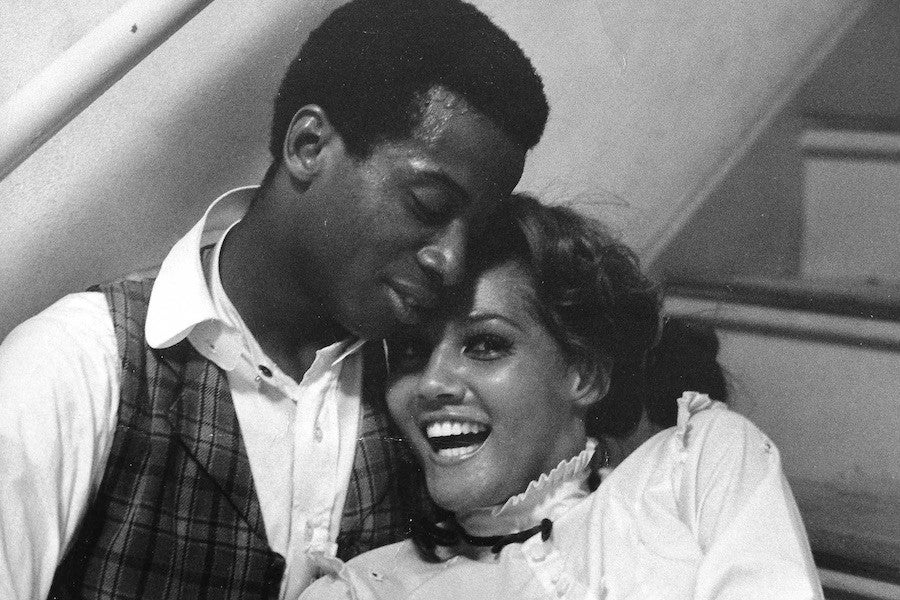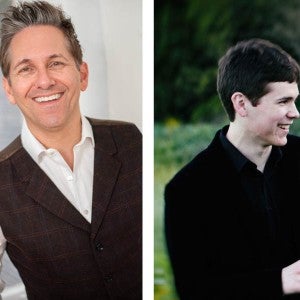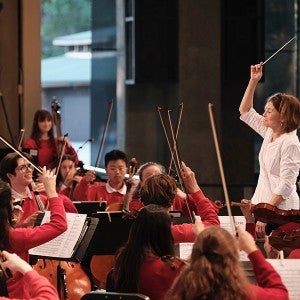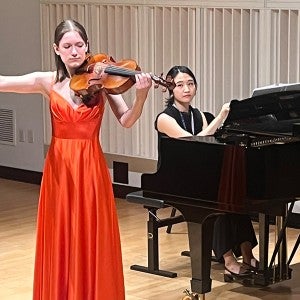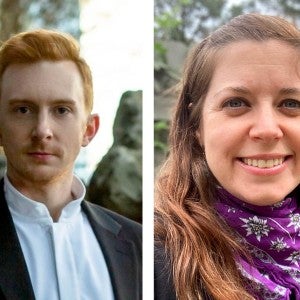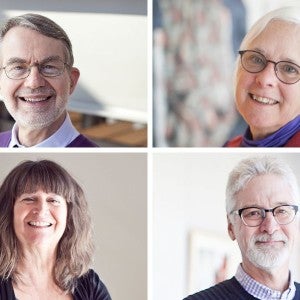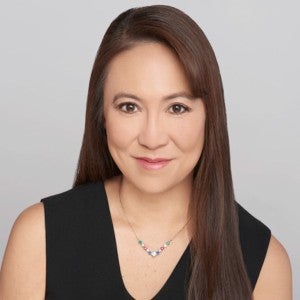“We Shall Overcome”: Interlochen alumnus recalls marching on Washington with Martin Luther King Jr. in 1963
Damon Richard Evans, a successful actor and singer, looks back on his involvement with the struggle for civil rights.
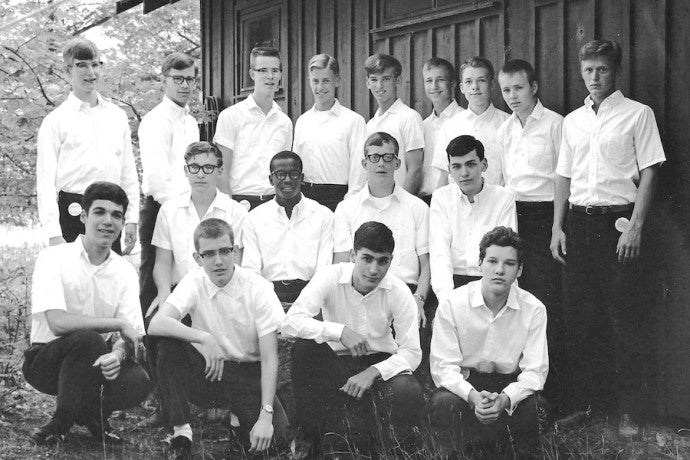
Damon Evans with cabin mates, 1966 (center row, second from left).
Damon Richard Evans (IAC/NMC 66, IAA 66-67) has lived his 73 years to the fullest. After attending Interlochen Arts Camp and Interlochen Arts Academy, he led a vibrant career that included acting roles from Broadway to television. He sang at the 1977 Tony Awards and showcased his considerable vocal talent in operas like Porgy and Bess.
One of the high points of Evans’ life, however, was his involvement with the struggle for civil rights. He marched on Washington with Martin Luther King Jr. in 1963 and heard the famous “I Have a Dream” speech in person. Here, Evans shares the story of how a 13-year-old kid from Baltimore became an eyewitness to one of the biggest events of his generation.
A long bus ride to Washington, D.C.
Evans was born in 1939 in Baltimore, Maryland. His parents did their best to shield their young son from racism, but it impacted Evans’ life even as a small child. Though Evans’ school was integrated, many other businesses remained closed to Blacks. Evans remembers that he once asked to go to a particular restaurant, but his mother refused.
“It wasn't until years later that I learned that it was segregated, which was why we couldn't go,” says Evans.
In elementary school, Evans began acting. He joined the local Children's Theatre Association which he remembers as “extremely diverse.” Evans was 13 years old in 1963. That August, bus tickets to Washington, D.C. became available at a church just down the street from where Evans lived. Martin Luther King Jr. was leading the March on Washington for Jobs and Freedom, and Evans wanted to go.
“I was always aware of things around me and things that had to do with Black history and culture … I instinctively knew it was important. And you also have to remember something: Martin Luther King Jr. was a superstar.”
The March came as the culmination of a tempestuous year that had seen outbreaks of violence across the nation. As a result of their peaceful protest in August, marchers hoped to see several demands met. These included an end to school segregation, laws that prohibited racial discrimination in employment, and protection of civil rights workers from police brutality.
“There was no way I was not going to go,” said Evans.
When the day arrived, Evans got ready to leave the house wearing jeans, a T-shirt, and sneakers. His mother stopped him and made him put on a nice shirt and pants. This turned out to be a smart decision, as most of the crowd had dressed well for the occasion. Evans climbed into the bus and listened while the passengers sang “We Shall Overcome” all the way down the interstate.
“It touched such a chord in all of us”
Once at the March, Evans didn’t waste any time getting close to the action.
“I was able to wiggle my way all the way up to the very front of the podium,” he says.
There, he watched as luminaries crossed the stage: Bob Dylan, Sammy Davis Jr., Marlon Brando, and Mahalia Jackson. When Dr. King began to speak, the crowd was riveted.
“When he got to ‘I have a dream,’ it was pandemonium,” Evans remembers. “It touched such a chord in all of us. Because that's all it was—a dream. What he was saying was not yet a reality.”
King spoke to a resounding chorus of “Yes, yes, yes,” exclamations of “Amen,” and applause.
“I didn't feel any separatism whatsoever, not in that moment,” says Evans. “I remember seeing fathers carry their sons or daughters on their shoulders. I remember seeing people in wheelchairs, and a blind person being led.”
When he got to ‘I have a dream,’ it was pandemonium. It touched such a chord in all of us. Because that's all it was—a dream. What he was saying was not yet a reality.
On the bus ride back home, the singing took on a celebratory tone.
“I don't even think those of us who were there realized the impact of what had happened that day until it was fully over,” says Evans.
The power of King’s speech stayed with young Evans. He memorized it in its entirety and performed it in two oratory contests, winning top awards each time.
But the March wasn’t the last time Evans saw Dr. King. In 1966, Evan shared the stage with King when his choir sang at King’s Coppin State University speech.
“He was the national conscience of America,” Evans says of King.
Coming to Interlochen
The minute I saw that poster with the red sweaters, the blue oxford shirts, the knickers and the two lakes I said ‘I want to go there.’
As the struggle for civil rights continued, Evans began exploring his considerable vocal talents. In his junior year of high school, he won a scholarship from the National Federation of Music Clubs that enabled him to attend Interlochen Arts Camp. Evans jumped at the chance.
“The minute I saw that poster with the red sweaters, the blue oxford shirts, the knickers and the two lakes I said ‘I want to go there.’”
At Interlochen, he studied Voice, Choir, and Piano. He had the opportunity to sing solo alongside an orchestra, which impacted him deeply. For the most part, Evans found respite from the racial struggles which had shaped his childhood.
“We were in a whole cocoon at Interlochen. The outside world didn't really touch us,” says Evans.
Upon graduation from Interlochen Arts Academy, Evans formed his own opera company, the Youth Chamber Opera Society.
“We ranged in age from 17 to 22. We were all young Black singers.”
His company received attention in papers like the Baltimore Sun and the Baltimore Afro-American.
“This would never, ever, ever have happened without my education at Interlochen,” says Evans.
In April of 1968, Evans settled into a seat at Baltimore’s Morris Mechanic Theater to enjoy a performance of the pre-Broadway musical I’m Solomon. Midway through, the curtain came down suddenly and the show was interrupted by an announcer.
“He said, ‘Ladies and gentlemen, we ask you to please go home. Martin Luther King has just been assassinated.’ There was an enormous gasp from the audience.”
“We all have a responsibility”
Over time, Evans began to realize that his presence as a Black man on the stage was a form of activism in itself. Spurred by his ambitions, he attended Boston Conservatory, sang in the Opera Company of Boston Chorus, and then turned his sights to New York. Soon, he was garnering Broadway roles in The Me Nobody Knows, Via Galactica, and Lost in the Stars. He also toured as “Judas” and “Jesus Christ” in the authorized concert version of the musical Jesus Christ Superstar.
“I remember getting a letter from someone who said, ‘I'm a Black kid, and you'll never know what it meant for me to see you play Jesus Christ,’” says Evans.
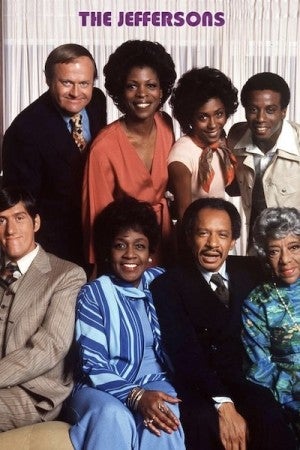
Damon Evans (top right) and the cast of The Jeffersons, 1975-1985
Evans made a name for himself in television, where he is best known for playing Lionel Jefferson on the CBS sitcom The Jeffersons. He also played the young Alex Haley in the ABC television miniseries Roots: The Next Generations, which dramatizes one family’s journey from West Africa to the United States.
As he reflects on his life, Evans is struck by how important it is for the next generation to remember their heritage.
“Know your history and on whose shoulders you stand,” he urges. “I believe we all have a responsibility to the time in which we live, whether it's being a good mother, father, teacher, minister, or postman. It does not have to be global. It could be in the community or within the family, but we all have a responsibility. It's up to us to find out what that purpose is and how we go about doing it.”
